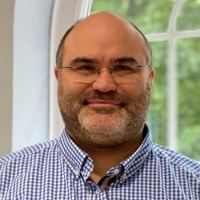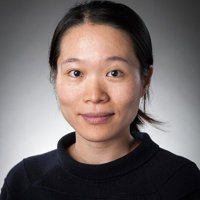Our online Academy CAFÉ (Connecting Awardees, Fostering Engagement) series provides engagement for research awardees and alumni. The platform ensures you can still benefit from the expertise and experience within the Academy’s network, as well as allowing you to share ideas, challenges and best practice in the current period and beyond.
Inclusive leadership is a hugely important capability helping organisations adapt to diverse stakeholders, markets, ideas, and talent. Inclusive leaders adapt quickly to diverse scenarios and alternate perspectives with an open, non-judgmental mind to bring on the best results possible. Research shows that there are many benefits including better team performance, more collaborative working and better overall decision-making.
For this panel discussion, Professor Alicia El Haj FREng speaks to a panel of research awardees, Dr Min Zhang, Dr Brian Sheil, Professor Sophie Williams and Professor Alex Frangi, on the topic of inclusive leadership in academia, followed by an interactive Q&A session.

Professor Alex Frangi FREng

Dr Min Zhang

Dr Brian Sheil

